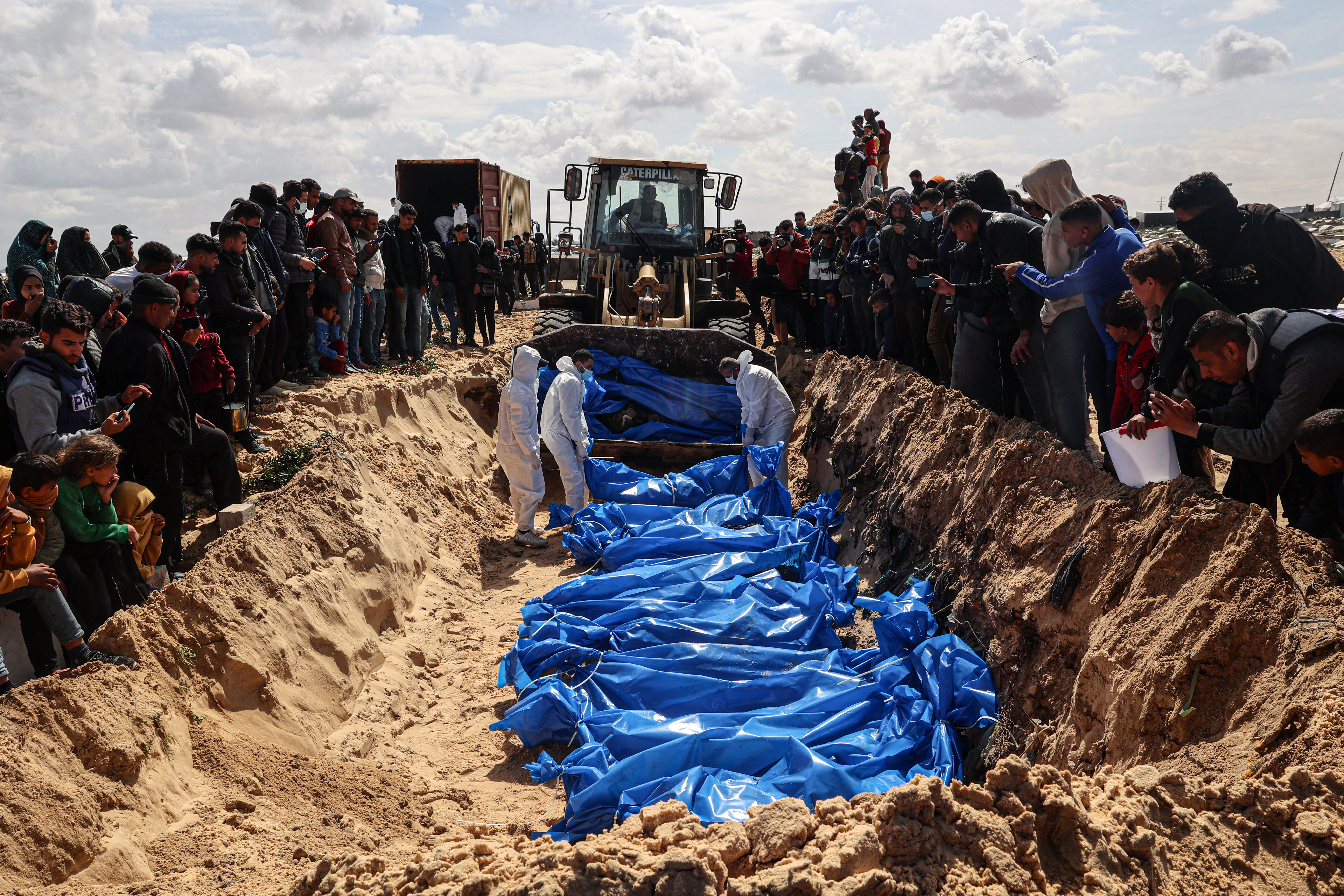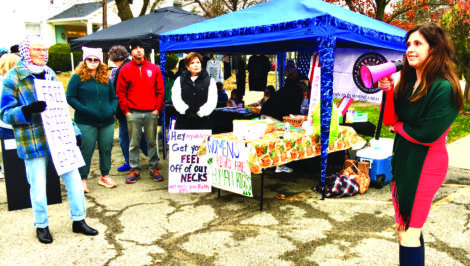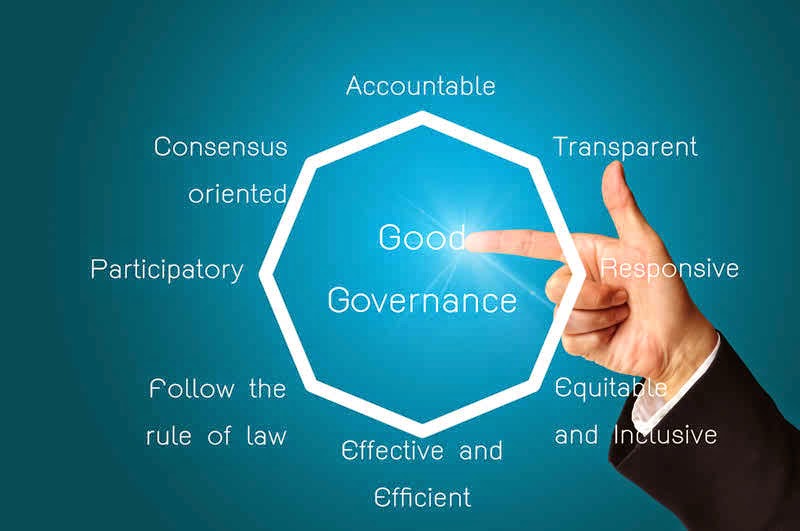Israeli organizations conclude Israel committing genocide in Gaza – Amnesty International

Analysis of Human Rights Reports on the Gaza Conflict and Implications for Sustainable Development Goals
Introduction and Summary of Findings
A report has been compiled following the publication of two analyses by Israeli human rights organizations, B’Tselem and Physicians for Human Rights Israel (PHRI). These documents conclude that the State of Israel is committing acts of genocide against the Palestinian population in the Gaza Strip. Amnesty International has endorsed these findings, highlighting them as a significant milestone in efforts to ensure accountability for violations of international law. The reports’ conclusions carry profound implications for the international community’s commitment to the Sustainable Development Goals (SDGs), particularly those concerning peace, health, and equality.
Violations of Health, Well-being, and Foundational Survival (SDG 3, 1, 2, 6)
The findings present a severe challenge to the achievement of fundamental SDGs related to human survival and dignity. The deliberate targeting of life-sustaining systems directly contravenes the global development agenda.
Systematic Dismantling of Healthcare Systems (SDG 3)
The report by Physicians for Human Rights Israel provides a medical-legal analysis documenting the methodical destruction of the healthcare infrastructure in Gaza. This represents a direct assault on SDG 3 (Good Health and Well-being). The documented actions are not presented as incidental consequences of conflict but as a deliberate policy calculated to destroy Palestinian lives. Key findings include:
- Direct and indiscriminate attacks on hospitals and other healthcare facilities.
- Systematic blocking of essential medical aid and supplies.
- Arbitrary restrictions on the medical evacuation of critically ill and wounded individuals.
- The detention, torture, and killing of healthcare professionals.
Infliction of Conditions Undermining Basic Human Needs (SDG 1, 2, 6)
The reports detail actions that create conditions calculated to bring about physical destruction. This strategy directly undermines the most basic SDGs:
- SDG 1 (No Poverty) and SDG 2 (Zero Hunger): The destruction of systems critical for the survival of the civilian population actively engineers conditions of extreme poverty and famine.
- SDG 6 (Clean Water and Sanitation): The destruction of critical infrastructure invariably impacts access to clean water and sanitation, a key component of inflicting life-threatening conditions.
Breaches of Peace, Justice, and Institutional Integrity (SDG 16)
The core of the reports’ allegations relates to the systemic failure of justice and the rule of law, which are the cornerstones of SDG 16 (Peace, Justice and Strong Institutions).
System of Apartheid and Culture of Impunity
The B’Tselem report, titled Our Genocide, contextualizes the actions within a broader framework of an Israeli system of apartheid and a decades-long culture of impunity. This analysis points to a complete breakdown of the principles enshrined in SDG 16, which calls for accountable and inclusive institutions at all levels. The failure to hold state actors accountable for crimes under international law is identified as a primary enabling factor.
Erosion of Sustainable Communities and Equality (SDG 10 & 11)
The reports document patterns of destruction and displacement that negate progress toward sustainable and equitable societies.
- Reduced Inequalities (SDG 10): The assertion of a system of apartheid against all Palestinians is a fundamental violation of the goal to reduce inequality within and among countries.
- Sustainable Cities and Communities (SDG 11): The report notes escalating patterns of destruction in the occupied West Bank, including forcible transfers. Such actions are antithetical to the objective of creating safe, resilient, and sustainable human settlements.
Call for International Action and Upholding Global Commitments
In light of these findings, Amnesty International has issued an urgent call for the international community to translate the reports’ conclusions into decisive action. This appeal, coinciding with a UN conference on Palestine, emphasizes that states must uphold their obligations under international law and their commitments to the Sustainable Development Goals.
Recommendations for State Actors
The unequivocal call is for participating states to move beyond debate and take effective measures consistent with their global responsibilities. The key demands are:
- Formally recognize that the actions against Palestinians in Gaza constitute genocide.
- Implement urgent and effective measures to end Israel’s impunity for human rights violations.
- Work to stop the genocide, end the unlawful occupation of Palestinian Territory, and dismantle the system of apartheid.
- Take decisive steps to restore faith in international law, which is the essential foundation for achieving the entire 2030 Agenda for Sustainable Development.
1. Relevant Sustainable Development Goals (SDGs)
-
SDG 3: Good Health and Well-being
This goal is directly relevant due to the article’s extensive focus on the “deliberate and systematic destruction of the healthcare system in Gaza.” The text highlights attacks on medical facilities, the killing of healthcare workers, and the blocking of medical aid, all of which are antithetical to ensuring healthy lives and promoting well-being.
-
SDG 16: Peace, Justice and Strong Institutions
The article’s central themes of “genocide,” “crimes under international law,” “impunity,” and the call for “justice and accountability” directly connect to SDG 16. It describes a complete breakdown of peace and justice and calls on the international community to uphold the rule of law.
-
SDG 10: Reduced Inequalities
The reference to Israel’s “system of apartheid against all Palestinians” and the “dehumanization of Palestinians” points to severe inequalities and discrimination, which SDG 10 aims to eliminate.
-
SDG 11: Sustainable Cities and Communities
The mention of “forcible transfer” and the “destruction and annihilation in the occupied West Bank” relates to this goal, which seeks to make human settlements inclusive, safe, resilient, and sustainable. Forcible transfer directly undermines the safety and security of communities.
2. Specific SDG Targets
-
SDG 3: Good Health and Well-being
- Target 3.8: Achieve universal health coverage, including access to quality essential health-care services. The article explicitly states this target is being violated through the “deliberate destruction of the healthcare system,” “direct and indiscriminate attacks on healthcare facilities,” and the “blocking of medical aid.”
- Target 3.d: Strengthen the capacity of all countries for early warning, risk reduction and management of national and global health risks. The article describes the opposite: a systematic dismantling of health capacity through the “detention, torture and killings of healthcare workers” and destruction of infrastructure.
-
SDG 10: Reduced Inequalities
- Target 10.3: Ensure equal opportunity and reduce inequalities of outcome, including by eliminating discriminatory laws, policies and practices. The call to “dismantle its system of apartheid” directly aligns with this target, as apartheid is an institutionalized system of discrimination.
-
SDG 11: Sustainable Cities and Communities
- Target 11.1: Ensure access for all to adequate, safe and affordable housing and basic services. This target is undermined by the “campaign of forcible transfer” mentioned in the article, which denies people safe housing and community stability.
-
SDG 16: Peace, Justice and Strong Institutions
- Target 16.1: Significantly reduce all forms of violence and related death rates everywhere. The article’s focus on “genocide,” “killings,” “bodily and mental harm,” and “annihilation” shows a direct failure to meet this target.
- Target 16.3: Promote the rule of law at the national and international levels and ensure equal access to justice for all. The article highlights a “pervasive culture of impunity” and calls for states to “end Israel’s impunity for its human rights violations,” indicating a lack of rule of law and access to justice.
3. Mentioned or Implied Indicators
-
Indicators for SDG 3 (Good Health and Well-being)
- Number of attacks on healthcare facilities (explicitly mentioned as “direct and indiscriminate attacks on healthcare facilities in Gaza”).
- Number of healthcare workers killed, detained, or tortured (explicitly mentioned as “detention, torture and killings of healthcare workers”).
- Access to medical aid and supplies (implied by the “blocking of medical aid”).
- Access to medical evacuations (implied by “arbitrary and sweeping restrictions on medical evacuations of critically sick and wounded Palestinians”).
-
Indicators for SDG 10 (Reduced Inequalities)
- Existence of discriminatory policies and systems (explicitly mentioned as a “system of apartheid”).
-
Indicators for SDG 11 (Sustainable Cities and Communities)
- Number of people subjected to forcible transfer (explicitly mentioned as a “campaign of forcible transfer”).
-
Indicators for SDG 16 (Peace, Justice and Strong Institutions)
- Number of victims of intentional homicide and conflict-related deaths (implied by the terms “killings,” “genocide,” and “annihilation”).
- Level of impunity for human rights violations (explicitly mentioned as a “pervasive culture of impunity” and a “cloak of impunity”).
- Adherence to international law (implied by the call for the international community to “restore some faith in international law”).
4. Summary Table of SDGs, Targets, and Indicators
| SDGs | Targets | Indicators (Mentioned or Implied in Article) |
|---|---|---|
| SDG 3: Good Health and Well-being |
|
|
| SDG 10: Reduced Inequalities |
|
|
| SDG 11: Sustainable Cities and Communities |
|
|
| SDG 16: Peace, Justice and Strong Institutions |
|
|
Source: amnesty.org

What is Your Reaction?
 Like
0
Like
0
 Dislike
0
Dislike
0
 Love
0
Love
0
 Funny
0
Funny
0
 Angry
0
Angry
0
 Sad
0
Sad
0
 Wow
0
Wow
0













































































